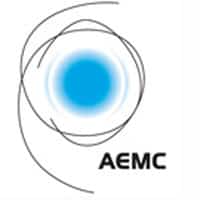People living in remote areas of Australia will get their electricity from stand-alone power systems like solar panels and battery storage under new connection rules.
The Australian Energy Market Commission (AEMC) has recommended a change to current regulations that require all electricity customers to be connected to the main grid.
It would mean electricity distributors could service remote areas with stand-alone power systems (SAPS) like solar farms. The current rules mean that extensive networks of poles and wires are the only available option for remote connections.
Remote and rural customers would therefore enjoy cheaper, more reliable energy from microgrids made up of solar power panels, battery storage and back-up diesel generators.
Out with poles & wires, in with stand-alone power systems
AEMC CEO Anne Pearson says costly poles and wires will no longer be needed. Remote customers will also say goodbye to unreliable power supply and frequent or extended blackouts.

Poles and wires make up around 50 per cent of the average power bill. Phasing them out will therefore reduce costs as well as bushfire risk, Pearson says.
Recommendations in the AEMC’s ‘Final report: Review of stand-alone power systems – Priority 1’ apply to the National Electricity Market. This excludes Western Australia and parts of the Northern Territory.
Consumers would still enjoy legal protection covering quality of service, reliability and access to competitive market offers.
The report notes that the changes will “unlock the benefits of new technologies that are increasingly allowing electricity services to be delivered through alternatives to a traditional grid connection”.
Solar generators major success in Western Australia
Trials of stand-alone power systems are now underway in several states including NSW, Queensland and Western Australia.
WA’s Western Power completed a successful 12-month trial of stand-alone power systems in 2016. Six individual solar power systems now serve a number of farms in Ravensthorpe, WA. The trial found:
- Solar power made up more than 90 per cent of electricity generated over that time.
- Outages reduced from 70 hours to five hours.
- The stand-alone systems proved resistant to extreme weather.
Trials are now taking place across more than 60 sites in the Western Power network.
Farmers embrace solar power & battery storage
Farmers in remote and rural areas across Australia are embracing stand-alone power systems in the form of solar installations with solar battery backup.
WA state-owned utility Horizon Power is also replacing 54 kilometres of ageing power lines and poles with microgrid solar battery storage at 14 Esperance farms.
The utility will also roll out 13 Micro Power Systems supplying both clean and diesel energy.
Meanwhile, a 2018 CommBank Agri Insights report found 76 per cent of Australian farmers want to invest in solar power with battery backup. This then extends to 84 per cent of farmers in WA.












































